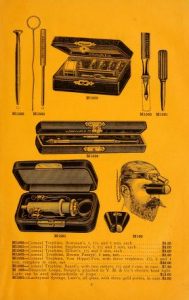Please join us for the 13th J. Worth Estes, M.D. History of Medicine Lecture sponsored by the Boston Medical Library on Tuesday, May 23, 2017 – 5:30pm. To register, contact the Boston Medical Library at BostonMedLibr@gmail.com or 617-432-5169.
With the upcoming 50th anniversary of the first heart transplant operation, performed by South African surgeon Christiaan Barnard in December 1967, Prof. Shelley McKellar examines cardiac transplantation alongside the development of artificial hearts as replacement therapies for heart failure patients during the 1960s. Not long after Barnard, American surgeons Adrian Kantrowitz and Norman Shumway performed heart transplant operations in New York and California respectively. Within weeks, more cardiac surgeons jumped on the transplant ‘bandwagon.’
In the year 1968, more than 100 heart transplant operations were done worldwide, with Denton Cooley, Norman Shumway and Michael DeBakey performing the greatest number of cases. But patient mortality rates were appalling high due to organ rejection and infection. Still dying heart failure patients camped outside the offices of heart transplant surgeons, hoping for a life-saving procedure.
In 1969, Cooley implanted an artificial heart in a Houston man as a desperate measure to provide this. The device kept the patient alive for 64 hours until he received a donor heart, but this only sustained him for another 32 hours before the patient succumbed to pneumonia and kidney failure. The artificial heart implant case fueled the debate concerning the best cardiac replacement therapy—human or mechanical parts—to offer heart failure patients; neither produced satisfactory outcomes and many in the medical community questioned the continued pursuit of these treatments. (The 1969 implant case also severed the professional relationship of DeBakey and Cooley due to allegations of device theft and lack of authorization to perform the implant procedure.)
McKellar explores how the challenges and uncertainties experienced in heart transplant surgery augmented the standing and perceived value of artificial heart implantation as a complementary, not competing, cardiac replacement treatment in a period of ‘spare parts’ optimism in American medicine and society.
Prof. McKellar completed a PhD in the History of Medicine at the University of Toronto, under the supervision of Prof. Michael Bliss. She then worked at the Smithsonian Institution in Washington, DC on a documentary history project before taking a tenure-track position in the Department of History at Western University, London, Canada in 2003. In 2012, she became the Hannah Chair in the History of Medicine at the Schulich School of Medicine & Dentistry at Western University. In teaching medical students, she aims to get them to appreciate the historical and cultural contingency of medical practice – that is – recognize that time and place matter regarding what we think we know and how we practice medicine.
Prof. McKellar’s research focuses on the history of surgery, predominantly cardiac surgery, medical technology, and the material culture of medicine. Her newest book, entitled Artificial Hearts: The Allure and Ambivalence of a Controversial Medical Technology is forthcoming – this fall 2017 – with Johns Hopkins University Press. This book traces the history of an imperfect technology, situating the more-well-known events of the Michael DeBakey and Denton Cooley professional fall-out after the first artificial heart implant case in 1969 as well as the 1982-83 Jarvik-7 heart implant case of Barney Clark within a larger historical trajectory that also includes the development of atomic artificial hearts and ventricular assist devices (or ‘partial’ artificial hearts.) It can be seen as a case study that speaks to questions of ‘success,’ values, expectations, limitations, and uncertainty in a high-technology medical world that grapples with end-stage disease therapies.
McKellar has also written a biography of Toronto surgeon Gordon Murray who operated on the heart in the era of closed-intracardiac operations (before open-heart surgery), built the first Canadian artificial kidney machine, and pursued research on a controversial cancer serum and a spinal cord surgical procedure to restore function in paraplegics. McKellar also co-authored a book, entitled Medicine and Technology in Canada, 1900-1950, which was commissioned by the Canada Science and Technology Museum to assist in their mandate to collect and research medical technology.
As much as possible, McKellar incorporates medical objects into her teaching and research. As curator of the Medical Artifact Collection at Western, she conducts object research, mounts displays, and runs ‘hands-on’ student workshops to spotlight the often ‘hidden’ history of medical instruments and devices.
Cannon Room, Building C
Harvard Medical School
240 Longwood Avenue, Boston MA
To register, contact the Boston Medical Library at BostonMedLibr@gmail.com or 617-432-5169.








![Soldiers Wounded at the Battle of the Somme Arriving at No. 22 General Hospital, 1916 [0004184]](http://www.medicalheritage.org/wp-content/uploads/2017/02/0004184_ref-180x300-150x150.jpg)
